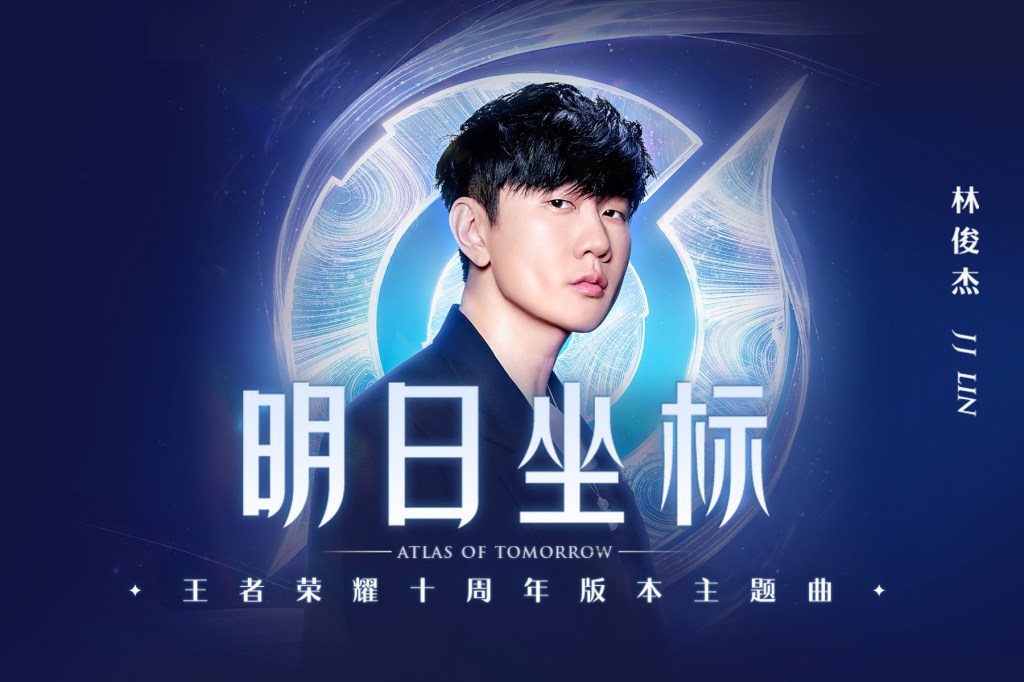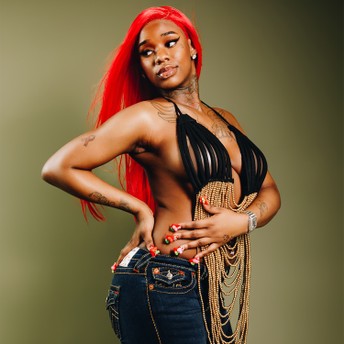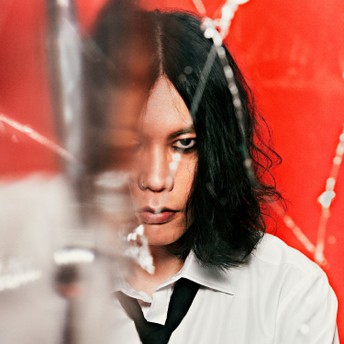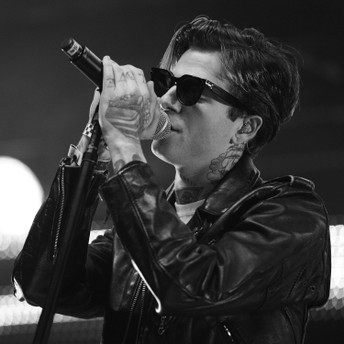Global
Page: 5
Trending on Billboard
If Canadian music sounds a little bit sadder over the next year, there’s a good reason: Across the country, fans are grappling with the heartbreak of a painful World Series loss. In Toronto, where fans of all stripes tuned in, the city is feeling the weight.
For one glorious week, the city became the epicenter of not just sports, but culture. As the Toronto Blue Jays played the Los Angeles Dodgers for baseball‘s biggest prize, the game emanated not just from the Rogers Centre, but homes, bars and even music venues.
It wasn’t just that Toronto was watching baseball. Baseball became part of the city’s cultural rhythm, blurring the lines between the game and the music that soundtracks it. In that moment, baseball became a mirror for Canadian culture — uniting generations, artists and genres around a team that felt bigger than the city it played for.
For bands who had shows on the night of the pivotal Game 7 on Saturday night (Nov. 1), they got creative — watching the game on an iPad onstage, as the Beaches did, or projecting it right behind them, like Born Ruffians.
At the Rogers Centre, artists became part of the texture of the game. Baseball collector and superfan Geddy Lee of Rush was a regular sight as he remained glued to his seat throughout the series, Arkells frontman Max Kerman joined a busker to sing Tragically Hip songs for patriotic fans, Justin Bieber brought his wife Hailey to catch the game from Los Angeles, decked out in a Bieber Blue Jays jersey (for pitcher Shane Bieber, not Justin).
Even Drake, who is famously associated with the Toronto Raptors, jumped from his typical courtside spot at the Scotiabank Arena to a private box at Rogers Centre to watch Games 1, 6 and 7 of the World Series. At the OVO-presented Vybz Kartel concert in Toronto, the Jamaican dancehall star donned a custom Blue Jays jersey.
Where countless rappers drop bars about Steph Curry, Kobe Bryant or Allen Iverson, baseball’s cultural currency often feels as timeless as the game itself. Songs associated with baseball tend to date back four decades, if not 10, and reference players from a century ago: more Babe Ruth and Joe DiMaggio than Shohei Ohtani and Vladimir Guerrero Jr..
That might change now. From Vladdy’s “born ready” swagger to Ernie Clement’s power of friendship, the 2025 Blue Jays were full of lovable characters and storylines to latch onto. The demographics of baseball are also changing.
While basketball touts the game going global, baseball has been there and continues to spread far and wide across the world. This series had impact players from Canada, the United States, Dominican Republic, Venezuela, Mexico and more, while Dodgers players like Ohtani, Roki Sasaki and Yoshinobu Yamamoto have become cultural icons in their homeland of Japan. The Major League Baseball season began with a game in Japan and finished in Canada, the first time it’s ever started and finished outside of the U.S.
That sense of global reach — and the music and celebrity culture intertwined with it — is no accident. Uzma Rawn Dowler, Chief Marketing Officer of Major League Baseball, says the league has been intentionally weaving music into the fabric of the game.
“Music is such a staple in baseball,” says Dowler in an interview with Billboard Canada during Game 6 at the Rogers Centre in Toronto. “We have our player walk-up songs, but we’ve also found that music is a passion point for our young and diverse fans.”
That approach also extends to creating moments that feel authentic to each city. “We want to make sure we’re relevant to the market,” Dowler says. “Here in Toronto, we had Drake for Game 1 — and he was back for Game 6 [and then 7]. In Tokyo, for our opening game with the Dodgers and the Cubs, we had music acts that were relevant to that market.”
Dowler’s strategy — to make baseball feel as musically and culturally relevant as any other sport — is reflected on the field too.
“If you go in one of our clubhouses and you listen to the playlist, you’re going to hear every different type of music,” says EJ Aguado, Vice President of Player Engagement and Celebrity Relations at Major League Baseball. “You’re going to see and hear guys from all different walks of life, so many guys from different countries. You’re going to see that too with how different celebrities and artists show up here. It’s going to appeal to a bunch of different people and I think that’s just representative of our game.”
Asked about what he listens to to pump him up for games, former Toronto Blue Jay and current Los Angeles Dodger Teoscar Hernández told Billboard Canada he keeps the tempo low.
“For me, it’s more relax time,” he said. “I listen to a lot of Christian music. That’s what makes my mind and my head calm so I can be ready for the game.”
For his part, Blue Jay shortstop-turned-second baseman Bo Bichette said “I’m a huge [Justin] Bieber fan.” He loved seeing the Canadian star singer in L.A. supporting the Jays.
Players each had their own walkup music, which ran the gamut from System of a Down’s heavy rock song “B.Y.O.B” (Addison Barger) to Chappell Roan’s “Pink Pony Club” (Davis Schneider). Guerrero tends to use songs by Latin trap and reggaetón artist Eladio Carrión, who appeared at games in L.A., while Alejandro Kirk uses regional Mexican songs by artist Xavi. Ironically, the biggest Canadian tune was used by a Dodger, with Ohtani walking up to Michael Bublé’s version of “Feeling Good” — something that gave diehard Jays fan Bublé mixed feelings.
You could feel the city, and the country, coming together to unite fans of all ages, and that was reflected in its soundtrack too. The Weeknd collaborated with the Blue Jays for exclusive merch, while Abel Tesfaye narrated a hype-up video for Rogers Sportsnet. A rerecorded version of Queen’s “I Want It All” with the Toronto Symphony Orchestra became the team’s rallying cry.
This season, Scarborough artist Azeem Haq teamed up with rapper Choclair for a new version of the Blue Jays’ classic seventh inning stretch theme song “OK Blue Jays.” During the playoffs, the song was played on Sportsnet and trended on Instagram reels as fans used the song to cheer on the team. The song, which plays off the 1993 World Series-referencing line “like Carter did to Philly” from Choclair’s 1990 CanCon hit “Let’s Ride,” references every era of the Blue Jays and all of their playoff theatrics.
Haq tells Billboard Canada he was actually at the ’92 and ’93 World Series where the Blue Jays won back-to-back championships, attending the games with his uncle and father, and now he’s happy to bring the fandom into the new era for his four nephews, who all appear on the track. “It’s a generational thing,” he says. “My dad handed the love down to me, I’m handing it down to my nephews.”
This time around, political statements didn’t capture conversation the same way as they did for the NHL’s Four Nations tournament that pitted Canada and the United States against each other during a tense time of international relations earlier this year. There was notable backlash to singers changing the lyrics to “O Canada” before World Series games — JP Saxe singing “home on native land” (first sung by Jully Black) and Rufus Wainwright borrowing the “that only us command” line first used by Chantal Kreviazuk in that earlier hockey tournament.
There was also fan backlash to a Game 2 performance by Jonas Brothers, who played a song following a touching Stand Up To Cancer segment between innings. Where the halftime performance is an integral part of the Super Bowl, MLB games don’t have as natural a mid-game music segment (though for her part, Dowler says the amount of time between innings was the same as previous tributes; they just went to Jonas Brothers instead of a commercial).
Still, there was a concerted effort to bring star power to the series. In L.A., celebrities like Brad Pitt and Sydney Sweeney showed up to the game, while Toronto set up a red carpet-like photo op with the Commissioner’s Trophy for celebrities like P.K. Subban, Jerry O’Connell and Vampire Diaries‘ Paul Wesley to pose with. In Toronto, Pharrell Williams opened the series with gospel group Voices of Fire for a flashy version of the American national anthem.
Even amid the heartbreak, something shifted. Baseball, often seen as the slower, quieter sport, suddenly felt alive in the country’s cultural bloodstream. In Toronto, it felt like one of the biggest moments of collective pride and energy since the 2019 Toronto Raptors championship — something the city has been begging for since the pandemic.
Game 7 of the 2025 World Series was reportedly the most watched baseball game since 2017, garnering 5 million more viewers than Game 7 of this year’s NBA Finals. It feels like baseball is more culturally relevant than ever, and the nail-biting Blue Jays-Dodgers World Series was a major part of that.
“I think we’re in the middle of the crest of the wave right now,” Dowler says, speaking about the worldwide cultural resonance of the sport. “This should not be unexpected for baseball anymore. This is what fans should expect from MLB — and that’s what we’re really, really excited about.”
“It’s great to bring music artists out here and show that the biggest stars are at baseball’s biggest stage,” says Aguado, noting that the celebrity calls they make are to real baseball fans, not just recognizable names. “This is the centre stage of the sports universe right now and we have the biggest and brightest on the field and off the field here in one place.”
For four games during the World Series, that place was Toronto. It ended with a gutting result, but it reignited a passion for baseball that will outlive 2025 — and might even spawn a few new Blue Jays anthems.
This article was originally published by Billboard Canada.
Trending on Billboard
Sexyy Red has officially joined the lineup for Rolling Loud Australia 2026. The breakout rapper was announced as the second artist for the festival’s return, following last week’s confirmation of Gunna as the first headliner.
Explore
See latest videos, charts and news
Rolling Loud Australia is set to take place across two cities in March: Sydney’s Centennial Park on March 7, and Melbourne’s Flemington Racecourse on March 8. The twin one-day events mark Rolling Loud’s first shows in Australia since 2019, and the first time the global hip-hop festival brand has expanded to a two-city format in the country.
According to organizers, pre-sale tickets sold out within hours of going live, and general tickets are now on sale via australia.rollingloud.com. Promoters have confirmed that the full festival lineup will be announced in the coming weeks and will include a mix of major international acts and leading Australian artists.
Since breaking through in 2023, Sexyy Red has achieved several Billboard chart milestones. Her highest Hot 100 placement came in November 2024, when she reached No. 10 as a featured artist on Tyler, The Creator’s “Sticky” alongside Lil Wayne and GloRilla. She first entered the Hot 100 with the “Pound Town” remix featuring Nicki Minaj, and followed that with her viral hit “SkeeYee,” which peaked at No. 62 and topped the inaugural TikTok Billboard Top 50. She also appeared on Drake’s “Rich Baby Daddy” (No. 11) and scored her first top 20 solo hit in 2024 with “Get It Sexyy,” which peaked at No. 20.
On the Billboard 200, her 2024 mixtape In Sexyy We Trust debuted at No. 17, following her 2023 breakout Hood Hottest Princess (No. 62). In recognition of her independent rise, she was named Billboard’s Indie Rapper of the Year in 2025.
Rolling Loud co-founders Matt Zingler and Tariq Cherif, both named multiple times on Billboard’s Hip-Hop Billboard Hip-Hop Power Players list, continue to expand the brand globally. Alongside its flagship Miami festival, Rolling Loud has produced shows in Europe, Asia, Canada, and the Middle East. The franchise also recently announced its debut in India for 2025.
The festival first landed in Australia in 2019, with the debut including performances from Future, Playboi Carti, Rae Sremmurd, Tyga, and a surprise appearance from a then-rising The Kid LAROI.
Trending on Billboard
Kenshi Yonezu’s “IRIS OUT” continues to dominate the Billboard Japan Hot 100 for the seventh consecutive week, on the chart released Nov. 5.
While overall chart points for the Chainsaw Man – The Movie: Reze Arc theme dipped slightly compared to last week, karaoke performance increased to 116%. The track sits at No. 1 for streaming, video views, and karaoke, while hitting No. 3 for downloads, No. 9 for CD sales, and No. 13 for radio airplay, extending the hitmaker’s longest-running stay atop the Japan Hot 100.
At No. 2 is Sakurazaka46’s “Unhappy birthday Koubun,” which jumps from No. 15. The girl group’s 13th single sold 614,231 copies to take No. 1 for sales, and comes in at No. 10 for downloads, No. 9 for streaming, No. 70 for radio, and No. 61 for video.
Explore
See latest videos, charts and news
Three songs debut in the top 10 this week. LE SSERAFIM’s “SPAGHETTI (feat. j-hope of BTS)” sold 92,621 copies to arrive at No. 3, BE:FIRST’s “I Want You Back” rules radio to bow at No. 4, and Travis Japan’s “Disco Baby” lands at No. 7 after topping downloads.
In other chart moves, several songs by veteran band back number see renewed momentum. “Blue Amber” rises 35-32, “Takaneno Hanakosan” 72-56, “Suiheisen” 79-77, while “Koi” returns at No. 87.
The Billboard Japan Hot 100 combines physical and digital sales, audio streams, radio airplay, video views and karaoke data.
See the full Billboard Japan Hot 100 chart, tallying the week from Oct. 27 to Nov. 2, here. For more on Japanese music and charts, visit Billboard Japan’s English X account.

Trending on Billboard
Global gaming powerhouse Honor of Kings has dropped its 10th-anniversary theme song “Atlas of Tomorrow,” now streaming across major platforms including Tencent Music Entertainment’s QQ Music, Kugou and Kuwo, alongside Apple Music, Spotify and KKBOX. The track shot to No. 1 across multiple charts upon release, cementing itself as the latest blockbuster crossover between Mandopop and globally influential game IPs.
“Atlas of Tomorrow” boasts composition and vocals by JJ Lin, brand ambassador of Honor of Kings, Mandopop heavyweight and two-time Golden Melody Awards winner for best male singer, and lyrics by Kevin Yi, hitmaker and senior music planner. JJ Lin describes the track as “dedicated to every dreamer still writing their future chapters, letting music guide you to the stories we’re meant to live.” The track shot to No. 1 on QQ Music, Kugou and other major Chinese streaming charts upon its release. As of publication, it has racked up more than 2 million saves across platforms, generated 70-plus trending topics on social media, and amassed more than 600 million views, shattering multiple records for gaming music.
Notably, the impact of “Atlas of Tomorrow” has expanded from the realms of music and gaming into an online cultural co-creation movement spanning multiple regions. Over 280 tourism boards across mainland China, from Beijing to Guizhou to Zhejiang, have spontaneously paired the track as a soundtrack with local landmarks and cityscapes for videos, triggering a viral relay across short-video platforms.
“Atlas of Tomorrow” centers on the theme of “Gathering for Journey.” The profound resonance of its melody and lyrics stems from its ability to encapsulate a decade’s worth of emotional memories and energy accumulated within Honor of Kings, a beloved national IP. Therefore, the work transcends mere melody, becoming players’ response to their youth and stories. The track’s overwhelming reception among gamers and music fans worldwide following its release reflects both the song’s exceptional craftsmanship and emotional depth, as well as the formidable cultural influence and crossover appeal that Honor of Kings commands.
Through this partnership, TME empowers the gaming IP to achieve multidimensional expression across visuals, gameplay and audio via content co-creation and integrated campaigns. The collaboration underscores music’s expanding cultural role and reach within gaming ecosystems. Moving forward, TME remains committed to deepening strategic alliances with globally influential cultural IPs, promoting music’s unique power across diverse cultural content ecosystems and helping high-quality original voices reach a wider international audience.
Trending on Billboard
The Neighborhood will head to Australia and New Zealand in July 2026 as part of their upcoming Wourld Tour, in support of their new album, (((((ultraSOUND)))), arriving Nov. 14 via Warner Records.
Explore
See latest videos, charts and news
The run begins July 4 at Spark Arena in Auckland, followed by headline shows at Sydney’s Hordern Pavilion on July 7 and Melbourne’s Margaret Court Arena on July 10. Presale begins Nov. 6 at 10 a.m. local time, with general onsale following Nov. 7 at 10 a.m. The Australian leg is presented by Handsome Tours.
The global Wourld Tour kicks off March 28 in Austin, Texas, and will hit major venues across North America, Europe, Asia and Oceania, including Madison Square Garden in New York and London’s O2 Arena. The tour will wrap with a hometown performance at the Kia Forum in Los Angeles on Oct. 9.
ultraSOUND marks the band’s first studio album since 2018 and is described as a stripped-back return to form. The LP was recorded between Conway Studios in Los Angeles and The Beehive in Van Nuys, with longtime collaborator Justyn Pilbrow and Jono Dorr. The band has previewed the project with singles “Private,” “OMG” and “Lovebomb,” the former of which received a new video on Nov. 4 directed by Ramez Silyan (Post Malone, The Kid LAROI).
Notably, the Wourld Tour also marks the return of drummer Brandon Fried, who was previously dismissed from the band in 2022 following allegations of inappropriate conduct. Fried publicly apologised at the time and entered treatment for substance abuse. His quiet return was first observed in early ultraSOUND sessions and confirmed with the release of “Private.” The band has not made a formal statement about his reinstatement, but fans noted his appearance in recent promotional material and tour visuals.
The Neighbourhood recently celebrated the 10th anniversary of their sophomore album Wiped Out! with an expanded edition featuring 11 previously unreleased demos and remixes.
The Neighbourhood Australia & New Zealand Tour 2026Presented by Handsome ToursJuly 4 – Spark Arena, Auckland, NZJuly 7 – Hordern Pavilion, Sydney, NSWJuly 10 – Margaret Court Arena, Melbourne, VIC
Trending on Billboard On Monday (Nov. 3), Billboard announced the launch of Billboard India to serve one of the world’s most rapidly growing music markets and showcase its talent to the world. In partnership with Other Side Ventures Pvt. Ltd., Billboard India will debut a host of offerings, including Billboard’s iconic charts, lists, music awards, […]
Trending on Billboard
Spotify has unveiled its most extensive out-of-home (OOH) and on-platform campaign to date in support of the 2025 ARIA Awards, spotlighting nominated Australian talent across more than 800 high-impact placements around the world — from major Australian cities to international landmarks including Times Square in New York and Leicester Square in London.
The campaign, launched in partnership with the ARIA Awards, aims to engage fans both locally and globally by integrating public voting directly into Spotify’s platform.
Related
Voting-enabled playlists are embedded within the app across four major categories: Best Australian Live Act, Song of the Year, Best Video and Most Popular International Artist. Fans are directed to the ARIA Awards hub via homepage banners, curated nominee spotlights, and QR codes displayed on select billboards.
According to Spotify, more than 250,000 Australians have already cast their votes through the platform, with engagement surpassing the past two years combined. Billboard placements across the U.S., U.K., and other key territories will continue to promote nominees in the lead-up to the ceremony, while winners will be celebrated globally after the ARIA Awards air on Nov. 19.
“The ARIA Awards 2025 campaign is Spotify’s most extensive local on-platform promotion ever — from in-app voting to high-impact OOH celebrations,” said Rosie Rothery, head of marketing at Spotify ANZ. “We’ve flexed the power of our platform and global footprint to put Australian artists and their success stories front and center.”
In addition to digital integrations, Spotify’s campaign includes a social media rollout, an ARIA Awards Spotify Artist Party, and the “Best of the ARIAs” collection — a curated shelf highlighting iconic Australian albums and past winners.
Annabelle Herd, CEO of ARIA, added: “The ARIA Awards 2025 are shaping up to be the biggest global platform to date for the incredible Australian artists making waves in culture around the world. As part of the ARIA Awards’ partnership with Spotify, we are thrilled to bring this year’s nominees to the streets that countless Australians travel day-in, day-out… before lighting up some of the world’s most iconic locations. This is what Aus music looks like on the world’s stage!”
The campaign continues Spotify’s 13-year commitment to promoting local music and complements its broader “Turn Up Aus” initiative focused on uplifting Australian artists.
Trending on Billboard
Sony Music announced Saturday (Nov. 2) that Vanessa Picken is stepping down as chair and CEO of Sony Music Australia and New Zealand, ending a three-year tenure marked by structural modernization, artist-first initiatives and industry-first milestones.
“It has been a privilege to lead such a dedicated and talented company, collaborating with so many inspiring artists and their teams,” Picken said in a statement. “Supporting their growth, creativity, and bold visions has been one of the most rewarding aspects of my role. With my term now complete, I feel this is the perfect time to embrace my next opportunity.”
Related
Picken was appointed in June 2022, becoming the first woman to lead the major label’s operations across both countries. She officially began in September 2022, succeeding former CEO Denis Handlin, who exited in 2021 following an external investigation into workplace culture. Her appointment was widely seen as a reset moment for the company.
Over the past three years, Picken spearheaded efforts to modernize the company’s internal operations and improve artist relations. Under her leadership, Sony Music ANZ invested in digital innovation, experiential brand opportunities and new licensing models, while placing increased emphasis on artist well-being and transparency.
“I am incredibly proud of what we have achieved together over the past three years, particularly during this transformative period for our Australia and New Zealand operations,” Picken continued. “We’ve modernized our organizational structure, enhanced our digital and marketing capabilities, and fueled new growth through experiential and licensing ventures. Throughout it all, we’ve placed a renewed focus on artist wellbeing and deepened their connection to the team.”
“As I move on from being the first woman to hold this role, I do so with great excitement for the future,” she added. “I’m confident I won’t be the last, and I hope that in the process, I’ve inspired others to follow their own paths.”
Rob Stringer, chairman of Sony Music Group, thanked Picken for her contributions in a statement to Billboard: “We extend our thanks to Vanessa for her time at Sony Music and for her commitment to guiding our artists’ careers and championing local creative talent. We wish her every success in the next chapter of her journey.”
No successor has been named, and Sony Music has not announced who will lead the company in the interim.
Trending on Billboard
Liam Gallagher has called out a fan who launched flares into the crowd during Oasis’ opening Australian tour stop at Melbourne’s Marvel Stadium on Friday night (Nov. 1), describing the individual as a “seriously f**ked up” person in a profanity-laced post on social media.
Explore
See latest videos, charts and news
The incident occurred during the final song of the night, “Champagne Supernova,” when two flares were seen flying into the densely packed floor section of the sold-out stadium.
One concertgoer told Australian outlet news.com.au that the flares sparked visible flashes among the crowd. “Each time you saw this flash, it looked like a fire, and then it was contained fairly quickly,” said Virginia, who attended the show with her 13-year-old daughter. The pair exited the venue early due to safety concerns.
Security reportedly conducted thorough bag checks at the gate, though it remains unclear how the flares entered the venue or whether any injuries occurred. Marvel Stadium has yet to comment.
Gallagher, never one to mince words, addressed the flare-thrower directly on Saturday morning.
“To the massive C*** who launched that flare into the crowd last night at the gig in Melbourne you are 1 seriously f***ed up individual and you will get yours trust me,” the singer he wrote on X.
During the performance, fans say Liam was visibly displeased, reportedly wagging his finger and mouthing “naughty, naughty” from the stage. His brother Noel Gallagher appeared concerned, though the band did not stop the performance. It is unclear if there were any injuries as a result of the incident.
The Melbourne concert marked the first show of Oasis‘ long-awaited Live 25 reunion tour Down Under. The group is scheduled to play three shows at Marvel Stadium before heading to Sydney’s Accor Stadium for two nights.
Before taking the stage, Liam greeted fans with, “G’day Australia! Did you miss us? Because we missed you!” The sold-out show drew massive crowds, with fans queuing from 5 a.m. to secure front-row spots and breaking into spontaneous singalongs outside the venue.
The Live 25 tour sees Noel and Liam Gallagher reuniting alongside Gem Archer, Andy Bell, and drummer Joey Waronker. Mike Moore is filling in for original guitarist Paul “Bonehead” Arthurs, who is undergoing treatment for prostate cancer.
Trending on Billboard
Dan Rosen has been promoted to an expanded role at Warner Music Group, now overseeing both the Australasia and Southeast Asia markets in a strategic move that consolidates leadership across a region of more than 550 million people.
Rosen, who currently serves as president of Warner Music Australasia, will now also lead recorded music operations in Indonesia, Malaysia, the Philippines, Singapore, Thailand and Vietnam. He continues to report to Lo Ting-Fai (Lofai), president of Warner Music Asia-Pacific.
Related
Under the new unified structure, Rosen will guide teams across eight diverse markets, with Warner Music citing the region’s heavy engagement with digital platforms and its increasing global influence. Southeast Asia is considered a “trigger region” by major labels — where digital momentum can break songs globally. WMG notes that some of its biggest acts receive up to a third of their global streams from this region alone.
“This region is richly diverse, full of extraordinary artists, talented entrepreneurs, and young passionate fans, who are highly engaged with a booming music ecosystem,” said Lofai. “Under Dan’s skilled leadership, our artists will tap into both the economic value and weight of population across all eight countries, providing a powerful springboard to global fame and fortune.”
The company also confirmed that Warner Music Australasia is evolving its domestic artist structure to double down on developing local acts. Recent global breakthroughs under Rosen’s leadership include Balu Brigada, Budjerah, Boy Soda, Kita Alexander and Thelma Plum.
“Our mission has always been to find dynamic ways to help our local artists go global, and for our global artists to grow passionate local fanbases,” Rosen said. “I’m honoured to lead a talented, focused team, and work with our amazing local partners, in these six diverse and exciting markets in Southeast Asia, while reinforcing our commitment to Australian and NZ artists.”
As part of Warner’s growing Southeast Asian presence, the company recently launched a pan-regional campaign for Vietnamese indie artist Vũ, who is set to embark on the largest-ever Australian tour by a Vietnamese artist.
Rosen will continue to lead Warner Chappell Music in Australia and New Zealand. Publishing operations in Southeast Asia remain under Arica Ng, president of Warner Chappell Music APAC, who reports to Guy Moot, co-chair and CEO of Warner Chappell Music.

 State Champ Radio
State Champ Radio 








